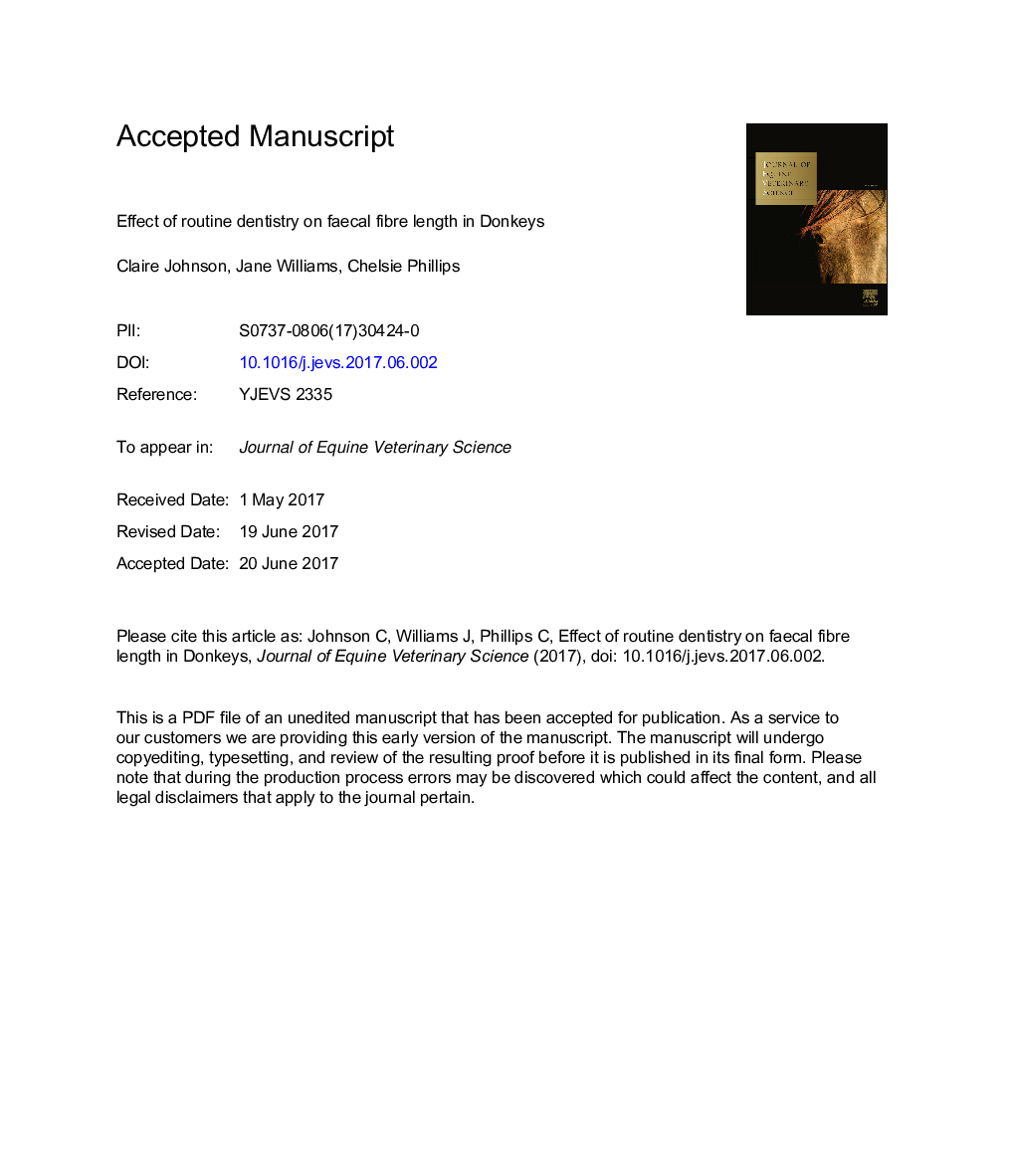| Article ID | Journal | Published Year | Pages | File Type |
|---|---|---|---|---|
| 5535680 | Journal of Equine Veterinary Science | 2017 | 15 Pages |
Abstract
Many donkeys are kept as companions in the UK and are not ridden or work, therefore dental pain can often go unnoticed by owners. Donkeys suffer from an increased frequency of dental pathology compared with horses and require regular dental treatment (rasping) to optimize their welfare. Fecal fiber length (FFL) has been suggested as a noninvasive method to assess when Equidae require dental treatment. This study aimed to identify FFL prerasping in donkeys requiring dental treatment and to evaluate how this changed over a 6-week period postrasping. Twenty adult donkeys of mixed sex and age, and subject to analogous management regimes were selected from The Donkey Sanctuary. Fecal samples were taken for FFL analysis prerasping (week 0) and postrasping (weeks 1-3 and 6). Mean FFL, determined via laboratory analysis, was recorded for each donkey and the cohort each week. Repeated measures analysis of variance with post hoc Bonferroni analyses and a Bonferroni adjustment (P ⤠.01) examined if differences occurred in FFL between weeks. The cohort's mean FFL was higher prerasping than for all weeks examined postrasping. Significant reductions in mean FFL for the cohort were reported pre- and postrasping for week 0 to weeks 1-3 and 6, 1 and 3, 1 and 6, 2 and 3, and 2 and 6 (P < .0001). Prerasping FFLs >3.3 mm were associated with the presence of dental elongations in adult, companion donkeys. This suggests that FFL measurement is a useful noninvasive tool that could be used to assess the dental health of donkeys.
Related Topics
Life Sciences
Agricultural and Biological Sciences
Animal Science and Zoology
Authors
Claire Johnson, Jane Williams, Chelsie Phillips,
